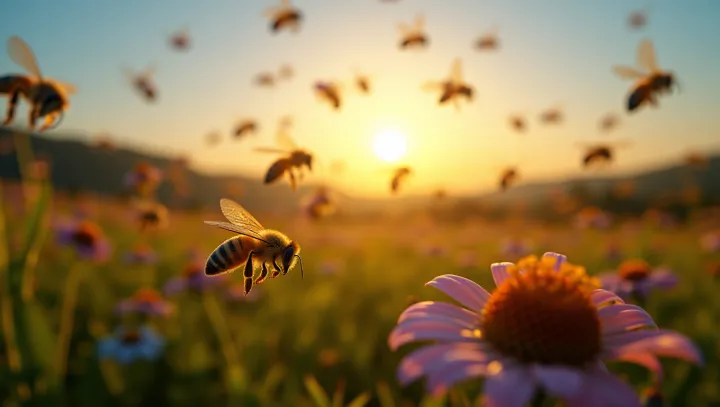Bees: Nature's Unsung Heroes

In the sprawling fields of California and the lush orchards of Spain, a buzzing sound paints a picture of life thrumming under the sun. These are the bees, nature's diligent workers, crucially ensuring the prosperity of global agriculture through their irreplaceable role in pollination. Bees contribute to the production of 70% of the world's main crops, underlining their significance in sustaining the global food supply.
Without their pollination services, many fruits, vegetables, and nuts would simply cease to exist, leading to severe ramifications for both ecosystems and economies. Dr. Emily Carter from the University of Cambridge emphasizes, 'Bees are fundamental to food security.
Their decline would not only impair agricultural productivity but also ripple through the conservation of biodiversity.' The ongoing challenges faced by bee populations, such as habitat loss and pesticide use, add urgency to the calls for protective measures. As awareness grows, initiatives focusing on bee conservation and sustainability are gaining traction. Experts are advocating for integrated pest management and pollinator-friendly farming practices, highlighting the necessity of maintaining diverse habitats to support these essential pollinators.
In a world increasingly conscious of its environmental footprint, safeguarding bees is not only pivotal for agriculture—it's a clarion call for ecological responsibility. A future without bees would mark a silent spring, altering the symbiotic relationship between humanity and the natural world in profound ways.
